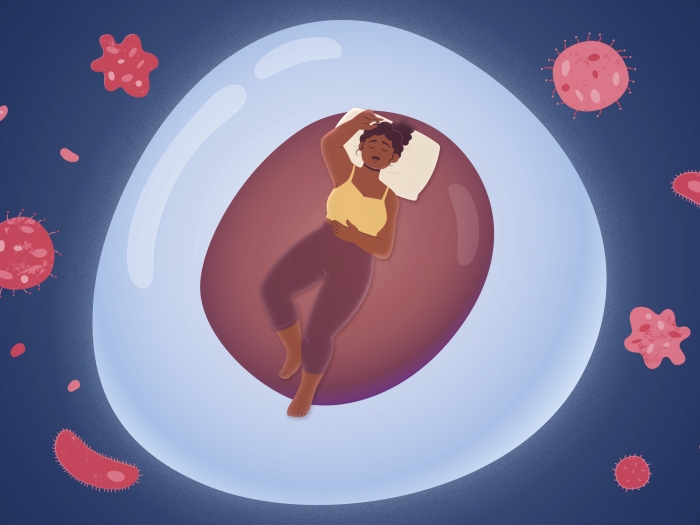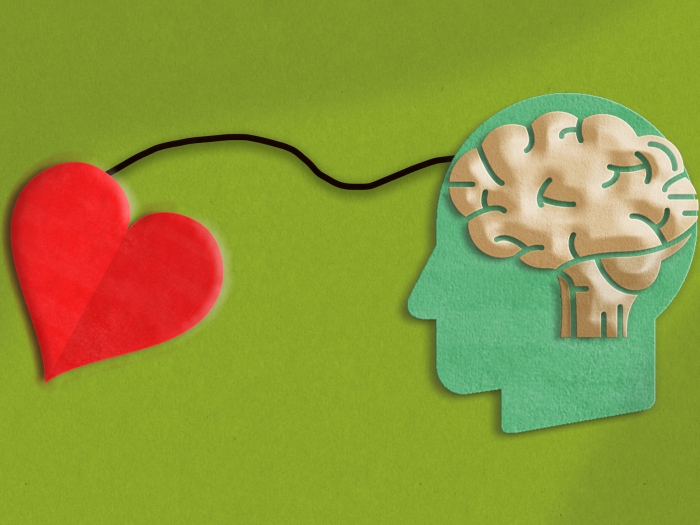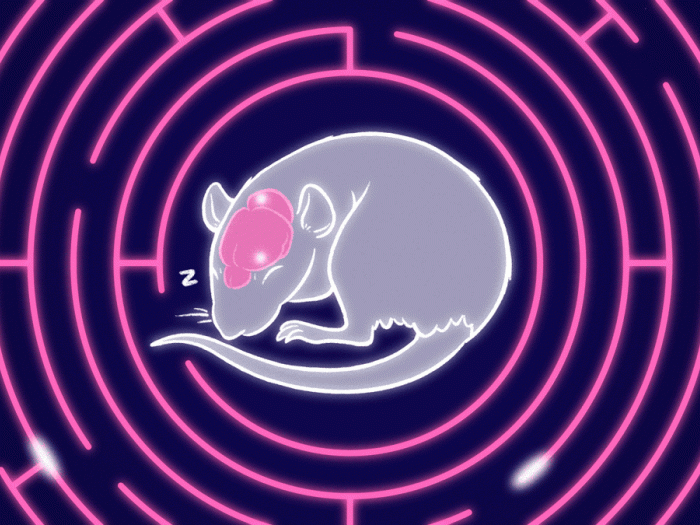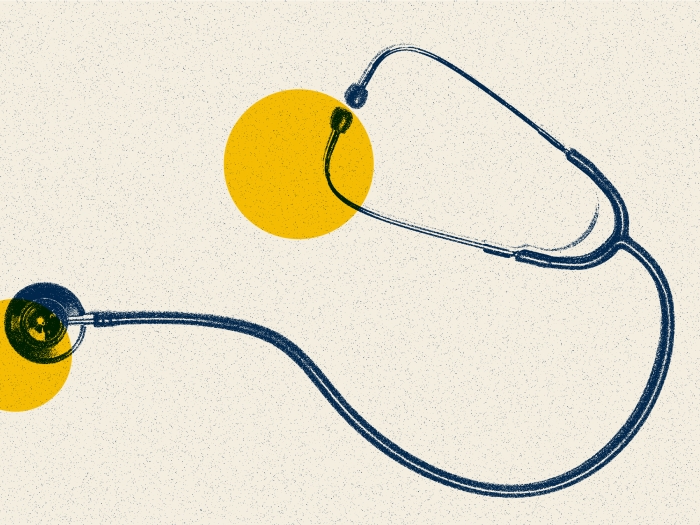Many labs are taking time to ensure that they are doing their part to support the Medical School’s major initiatives, including the push for carbon neutrality
Author |
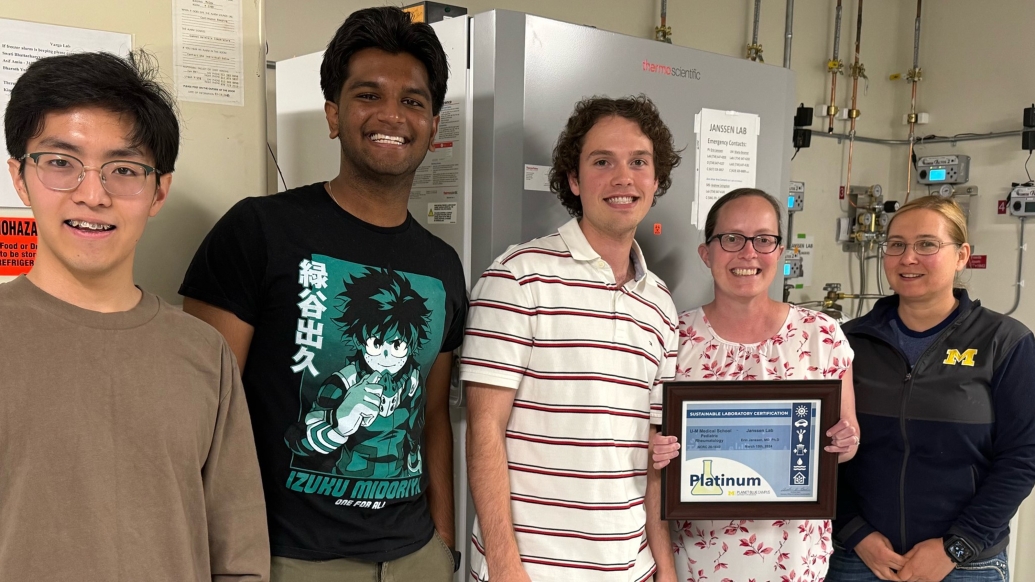
Faculty and staff who run research laboratories on the medical campus have a lot to do: hiring, teaching, recruiting subjects, storing and tracking samples, analyzing data — all part of the process of conducting high-impact inquiry that can run years, even decades.
Many labs also take the time to ensure that they are doing their part to support the Medical School’s major initiatives, including the push for carbon neutrality.
According to the University of Michigan Office of Campus Sustainability (OCS), research laboratories can use 5-10 times more energy than office spaces and produce an estimated 5.5 million tons of plastic waste per year (~2% of all plastic waste produced globally). To combat these numbers, OCS and Medical School Facilities are collaborating on a process to help labs certify as sustainable.
To participate in the U-M’s Sustainable Labs program., principal investigators (PI) and staff answer a series of questions about their lab, equipment and research environment. A lab’s certification is determined by their score on a 34-point system. Platinum is designated when a lab scores 95 percent of the possible points. The tier below, gold, is 83 percent. Additional certification levels include silver (65 percent) and bronze (40 percent). The Medical School has set a goal to have every wet bench research laboratory complete the sustainable lab survey — the first step toward becoming certified — by the end of 2024.
Erin M. Janssen, M.D., Ph.D., is PI for a lab in North Campus Research Complex Building 20 that utilizes patient samples and mouse models to determine the impact of genetic variants on pathways in the immune system. As of May 2024, her lab is one of 12 across the medical campus to earn platinum status. Nearly 40 labs throughout the Medical School and Michigan Medicine are certified as sustainable.
Janssen’s team has created better sample inventory and tracking, reduced -80 compressor cycling, minimized dry ice use, stabilized freezer temperatures, and recycled lab plastics and reduced plastics waste in an effort to help with U-M’s energy conservation and plastic waste reduction efforts. They also participated in vendor take-back programs, acquired consumables from labs that were closing, repaired equipment that was discarded by other labs, and participated in the chemical and lab reuse program, and lab swap events.
“As a new lab startup, we wanted to find a way to reduce carbon footprint and plastics waste,” says Janssen, the Charles Neil Weller Pediatric Discovery Research Professor, an associate professor of pediatrics, and section head of Pediatric Rheumatology, who joined the U-M faculty in 2022. “We are happy to contribute to a more sustainable laboratory environment and encourage other labs to partake in the challenge.”
The lab of Adam S. Lauring, M.D., Ph.D., has achieved platinum certification twice, in 2014 and again in 2024. His lab in Medical Science Building II works to elucidate fundamental mechanisms of RNA virus evolution.
“Back (in 2014), we wanted to initiate sustainable lab practices to do our part in reducing research waste and promote green lab culture,” says Lauring, a professor of internal medicine and microbiology and immunology. “We are proud of achieving platinum certification for the second time. It means that we have maintained a healthy green laboratory atmosphere that has been passed down to a decade of new scientists.”
Will Fitzsimmons, who manages the Lauring lab, said the recertification process is extremely straightforward. “The Office of Sustainability provided detailed information as well as a user-friendly application process,” he says. “In our recertification efforts, we discovered the University has implemented ‘green purchasing’ information to help with making research purchases that are best in line with sustainable practices.”
Maria Beamer, research lab specialist in Janssen’s shop, also praised the people and processes in place to help labs attain sustainable certification.
“We are very grateful to the Medical School Office of Campus Sustainability team — Alexandria Galens and Jack Gosselin — as well as Dr. Jason Knight’s lab (also Platinum-certified) manager, Sri Yalavarthi, for the helpful suggestions provided to reach the platinum level in the short amount of time,” Beamer says.
Lab teams can learn more about the sustainability certification process HERE, or by contacting: [email protected].

Professor
